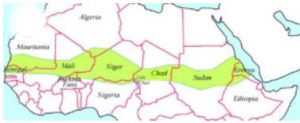 At the heart of the Sahel crisis was, and still is today, Mali where its future is at stake. Yet not just only she.
At the heart of the Sahel crisis was, and still is today, Mali where its future is at stake. Yet not just only she.
Militarily weakened and diplomatically vulnerable, states in the region, and their allies as well, should find a way out of the crisis and not just wait for it to happen.
With past August regime change, the massive and very expensive as well as highly publicized liberation of more than 200 jihadists, the practically subsequent official negotiations, in Farabougou near Ségou, between radicals and multiethnic notabilities, Mali conflict mutation is fully underway. General confusion, weariness, transformation of the conflict, eight years after the French intervention to save Bamako, a fresh politico-military approach is required.
With these political and security developments and the gloomy, even venomous, regional climate, a new exit strategy appears inevitable for Mali as well as for its near and far allies.
Conflicts within the conflict and drifts.
The longer an internal conflict, in which foreign armies operate, lasts and thus becomes bogged down, the more it encourages the rebellions and strengthens their resilience. Armed with this « march to victory » then, their strategy aims at spectacular actions … against civilians as seen in Afghanistan, Somalia and Yemen…and like the reception honoring the 200 released jihadists.
Tired, the populations of the affected areas and many others comfort the camp of the discontented who feed the rebellions.
Seven years after the landing of French soldiers, the populist protests of the June – 5 Movement, the confusion that led to the September 18 military coup and the publicized release of terrorists have reinvigorated jihadist groups. And, in their minds, validated their fight. From now on, achieving victory is the official goal.
The battlefield, now more political, is the conquest of national opinion, precisely that of the capital, Bamako. Weapons will be increasingly used to intimidate civilian populations. The media coverage of the images of the lavish reception given in honor of the jihadists released, in exchange of four hostages, speaks volumes about that ambition. As well as on the power, at least in the media, of the organization headed by Iyad Ag Ghali.
The Malian conflict, long an inter-ethnic war, and which in part still remains, is also increasingly becoming a nationwide war. Precisely like those already mentioned from Afghanistan, Somalia and Yemen
Faced with a situation more tangled and aggravated by the economic consequences of Covid 19, what should the forces present in the Sahel – national armies, the G- 5 Sahel, United Nations Minusma and Barkhane – present in the Sahel do?
The new Malian authorities deserve regional and international military as well as diplomatic support to ensure the success of the Transition. In this context, two avenues are open to avert in Mali and the Sahel an announced disaster and prepare a worthy exit of foreign troops while reinvigorating the G 5 Sahel in order to consolidate the stability of its members.
A controlled way out of the crisis.
Originally confined to the north, the conflict that erupted in December 2011 has since spread to other parts of the country and has taken root in the center. On the ground, international forces continue to prove their capability, saving lives and the integrity of states.
Today, eight years later, national troops are exhausted, populations are not in a better shape and foreign partners, civilians and soldiers as well, cannot help but be affected by routine or even skepticism.
For national and foreign parties, the Transition, in place since August 18, offers an opportunity to implement an honorable way out of the crisis or, at the very least, under control. Beyond their differences on various regional subjects, a successful transition and the implementation of the Algiers Agreements should be the aims of the Sahel main partners. Thus reinvigorated, regional security cooperation could resume.
Strengthening and expanding the G 5 Sahel.
The return to security in Mali will free up vast national and international resources to people and economies. First and foremost, it will facilitate the return of refugees and displaced persons and the revival of cross-border exchanges.
The hope that the region’s northern and southern borders would cease to be dangerous lawless areas remains strong.
To this end, the strengthening of the G 5 Sahel secretariat and its expansion to four countries – Algeria, Cote d’Ivoire, Morocco and Senegal, could prove useful and necessary. Of course, it will be hoped that these future member states would support the host Organization. And in particular, Mauritania, where the G 5 Sahel is based. A month long imposed armed blockage, at its northern border, a route of peoples and goods movements between West Africa and Europe, could benefit the Sahel terrorist groups by diverting governments’ attention and resources away from the hot Malian front. Ending it is a must.
With this G 5 Sahel evolution, an imitation effect should develop, not only to deter candidates for radicalism in the Sahel but also to have an imitation effect around the Lake Chad area where Boko Haram and other unidentified armed groups carry murderous actions.
In fine, putting an end to its diplomatic and military vulnerabilities, the Sahel could devote itself more to the not yet identified consequences of the Covid 19 and to the region many other handicaps.
Ahmedou Ould Abdallah , President centre4s
